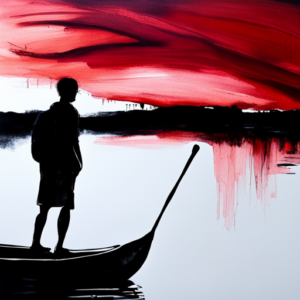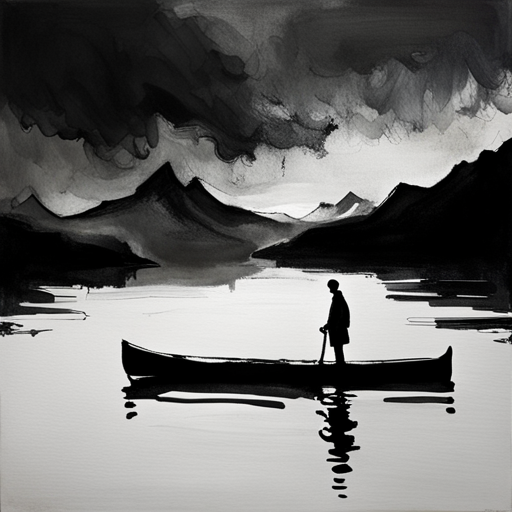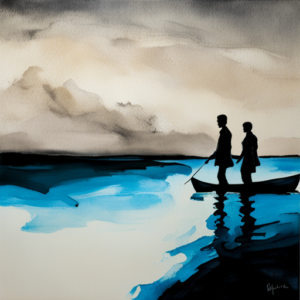(Cross-posted from Medium)
The Atlantic Ocean is a graveyard for “ghost boats”—people dying in search of freedom , including Black people from Mauritania.
AP reporters Felip Dana and Renata Brito spent two years trying to identify more than a dozen people whose bodies surfaced thousands of miles from home (northwest Africa) and their intended destination (Spain). They write: “The reasons pushing these men, women and children to go—a lack of jobs, poverty, violence, climate change—have only gotten worse.”
You can draw a straight line between the government repression of Black Mauritanians and their economic poverty. This is just one reason why the U.S. government must designate Temporary Protected Status for Mauritania today.
It’s common knowledge that slavery is rampant in the country. The very set-up of slavery—forced work with no pay—is an obvious example of economic violence as a tool of social repression.
Land-grabbing is another socio-economic problem. Black families whose descendants farmed the land for centuries are seeing their ability to survive suddenly taken away.
The Mauritanian government often denies Black people citizenship and identity documents, so they can’t get good-paying jobs. The lack of documents also gives police an “excuse” to beat or extort Black people, and take them to jail.
The government eliminated the use of French in public business, so that people who don’t speak Arabic are locked out of government jobs and educational opportunities. Most Black Mauritanian adults were never taught Arabic. This is a Black ban on government jobs and access, without saying it explicitly.
Add police violence to the economic violence directed at Black people and it’s little wonder why many are leaving Mauritania. But instead of offering safe migration pathways, they are forced to “try their luck” on the open sea (to reach Europe) or over land and jungle (to reach the U.S.)
Abdoul Mbow wrote about conversations he had with young people taking the southern land route and hoping for safety in the United States. Several young men have died along the way.
“‘Please don’t go, I beg. ‘Don’t make this dangerous journey.’ And what do they say to me? ‘We are dead already.’”
In eerie affirmation of Mbow’s point, the AP reported that at least twenty migrant boats that left from Mauritanian ports have vanished. “These migrants are as invisible in death as they were in life. But even ghosts have families,” write Dana and Brito.
The body of one young man was found wearing a t-shirt with a line from Lionel Richie: “Hello, is it me you’re looking for?” Terrified relatives gave the AP photographs of loved ones who left Mauritania by boat and disappeared, in hopes they could identify bodies by their clothing.
The man’s name was Abdoulaye Tall and he was from the Mauritanian village of Bourdouji. Tall’s father was “grateful for the information, even though it shattered his hopes,” according to the AP.
There were no survivors on Tall’s boat. But an account from Moussa Sako, who survived another journey where 60 people perished, narrates what it’s like to watch life become death aboard a vessel in the middle of the sea.
From the very beginning, Sako’s journey seemed doomed. The boat was overcrowded; gas and salt water leached into the bottom, burning their skin. Within a couple of days, they ran out of food and water; soon afterwards they ran out of fuel.
The first person to die was twenty years old. Soon, three to four people were dying every day. We’ll let the AP and Sako tell the rest of this story:
Some had hallucinations. One man jumped to his death thinking they had arrived. Others jumped to end their suffering. Sako, the healthiest, tried to help the others.
“I had four full (layers of clothes) on me,” he recalled. “I would take one off and put it on them … until I had only one.”
On day 18, he tried to get away from the rotting bodies. But they were everywhere. Only a handful of people were still alive. They hardly spoke.
Sako no longer feared death. He did worry about what would happen afterward.
“I wanted that even if I died, for people to recover (my body) and bury me,” Sako said. “If you disappear in the water, they can look for you for a hundred years.”
Finally, on day 22, a grey plane appeared in the sky above. Then came a helicopter. A rescuer dropped down and pulled Sako and the other two survivors from the corpse-ridden pirogue.
The bodies of 24 people were recovered and buried in the Canaries with case numbers instead of names. The remains of the other 36 were swallowed by the Atlantic.

Only three of the 63 passengers survived.
When the AP and police in Trinidad and Tobago contacted the Mauritanian government to request assistance identifying the bodies, their calls were not returned.
Perhaps that’s because this is the government’s plan. And it’s working.


